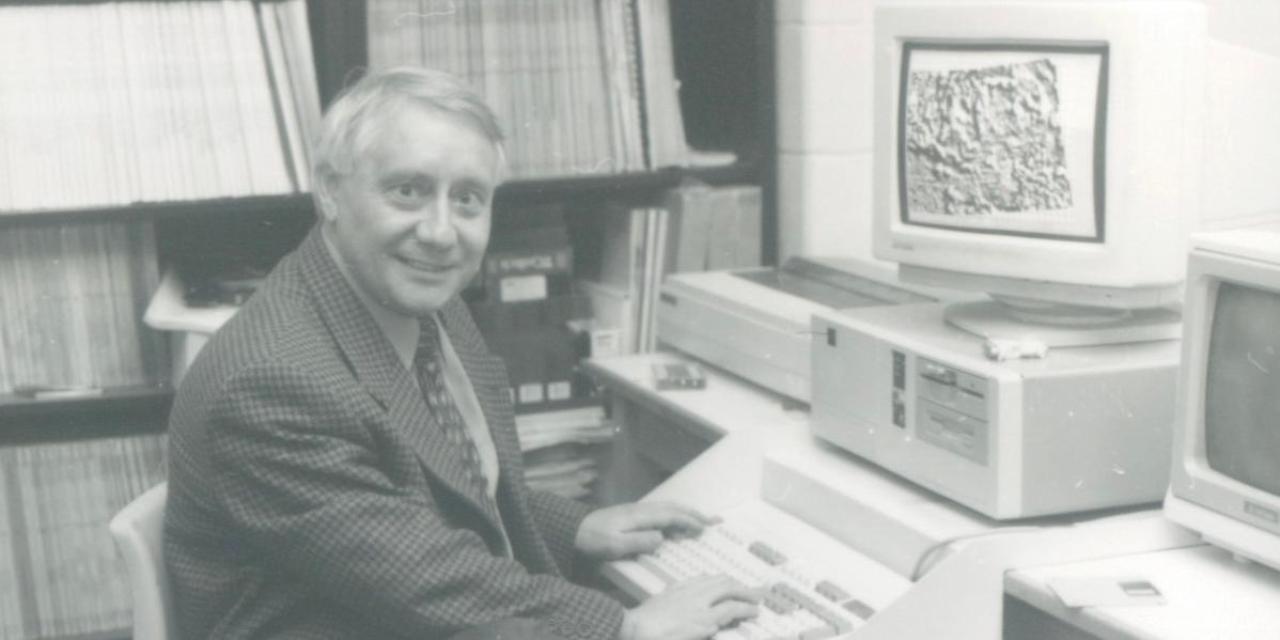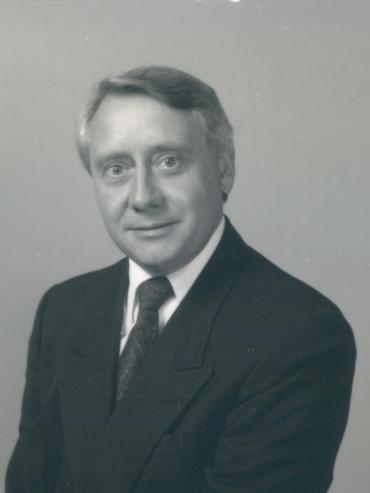Mapping the future
Dr. Hugh Miller’s commitment to building Memorial University goes all the way back to his days as an undergraduate when he helped organize the university’s first Science Society. He was known for his involvement in orientation activities and dedication to campus life.
His extracurricular activities didn’t detract from his academic success. In 1968, Dr. Miller graduated with an honours degree in physics. Two years later, he earned his master’s degree in physics-geophysics from Memorial as well.
After completing his doctorate at the University of British Columbia in 1973, he returned home to Memorial as a professor in the Department of Physics. In 1979, he moved to the Department of Earth Sciences.
For over 30 years, he was an instructor and advisor of geophysics students and an active research scientist, applying geophysical methods for the investigation of the crustal structure of Newfoundland and Labrador.
In 1989, Dr. Miller was appointed to sit on the Government of Newfoundland and Labrador Offshore Petroleum Board. He served in this position for 12 years.
He was elected chair of the Canadian Council of Professional Geoscientists in 1997. And in 2008, he was awarded the Canadian Professional Geoscientist Award by the Canadian Council of Professional Geoscientists, the highest award for geoscientists in Canada.

Dr. Hugh Miller at work in 1998. Photo from the Gazette.
For all his success as a professor of earth sciences and as a geophysicist and consultant, perhaps Dr. Miller’s greatest contribution to Memorial commenced in 1994 when he was named Associate Executive Director of the Marine Institute.
The Marine Institute (MI) had joined Memorial in 1992. In his new position, Dr. Miller became responsible for leading the development and administration of degree programs offered through MI. He promoted the programs, administered regulations, planned and scheduled courses, and assigned faculty.
During his tenure, he led the transition of the academic governance at MI to within the university system and facilitated MI’s expansion into degree offerings.
His vision led to the development of the Bachelor of Maritime Studies in 1995 and the Bachelor of Technology in 1997. Both programs were the first of their kind offered in Canada.
The Masters of Maritime Studies (Fisheries Resource Management), established in 1997, became the university’s first degree totally devoted to fisheries.
Dr. Miller consistently sought to bring researchers from Memorial and MI together to find new ways to share ideas and resources, advancing the research capabilities of the entire university.
Under his watch, MI became a degree-granting institution and began initiating some of the most advanced ocean research in the world.
Dr. Miller was dedicated to students and student life since his early days at Memorial. And after retiring in 2002, he established the Miller Graduate Scholarship at the Marine Institute. The scholarship is awarded annually to a full-time graduate student studying beyond their first semester in a research-based master’s program at MI.
During his career as a geophysicist, Dr. Miller used data and physics to help map Newfoundland and Labrador. As a leader, he built bridges that made our university whole and helped map the future of the Marine Institute.
